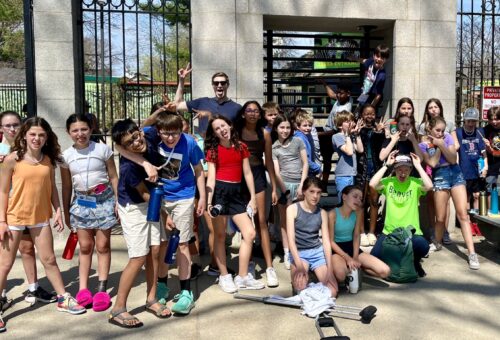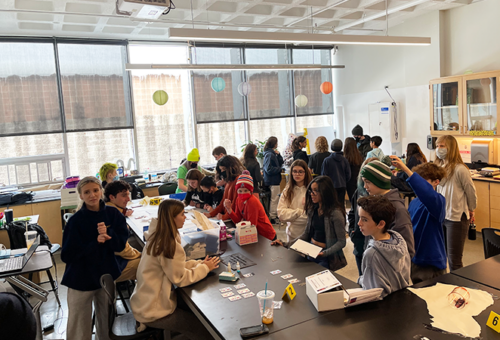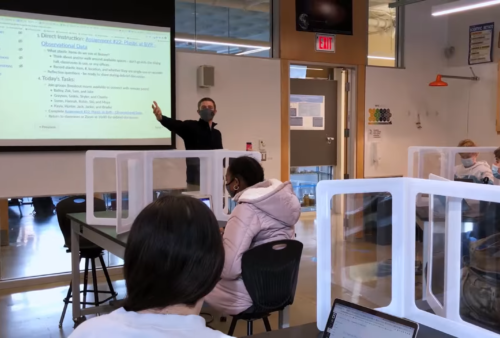Middle School Science
The Beaver Middle School Science Program offers students an opportunity to study energy, resources, climate science, ocean issues, genetics, infectious diseases, human body systems, earth science, ecosystems, and engineering using equipment and laboratories of exceptional quality.
Learning in the science curriculum is a student-centered and interactive process that reinforces investigation and discovery. Each course offers students unique opportunities for developmentally appropriate experimental and project work. Through experimental work, students exhibit their approach to scientific inquiry, logical thinking, precision and accuracy in measurement, control of variables, and clear, concise reporting of findings.
Middle School Science Courses
Science 6 – The Science of Place
Science 6 – The Science of Place
What is home? How do I understand my place and impact in a larger system? In Science 6, we get outside and explore our sense of place through several lenses, including Earth science, ecosystems, and engineering. We challenge ourselves to examine systems big and small through field study by strengthening our observation, data collection, and data
… analysis skills. [read more]Science 7 – The Science of Self
Science 7 – The Science of Self
Science 7 is an exploration of human body systems. Through hands-on labs and engineering design challenges, we study the human musculoskeletal, respiratory, cardiovascular, digestive, and nervous systems. This course focuses on hands-on science lab skills, including dissection, lab safety, and experimental design as well as design skills like sketching, physical prototyping, precision fabrication, and product testing
… by utilizing the tools in the R+D Center. Field trips, guest speakers, and design sprints will introduce us to the medical and biotech professions. Ultimately, we aim to gain a deeper understanding of our bodies and minds and test our limitations through physical activity and analysis of the “quantified self.” [read more]Science 8 – Current Global Issues in Science
Science 8 – Current Global Issues in Science
Artificial intelligence. Climate Science. Environmental conservation. Space Exploration. Plastic Pollution. Science topics regularly grace today’s headlines. In Science 8, we take a transdisciplinary approach to these and other current issues to develop science literacy skills in real world contexts. As we study the science behind current global issues, we explore how to support scientific claims with
… evidence, how to communicate scientific understanding, and how we as critical thinkers can engage with current issues through informed action and advocacy. [read more]Examples from the MS Science classroom
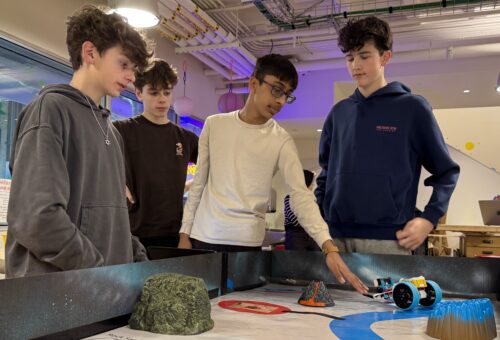
Science 8: Students design robots for planetary exploration
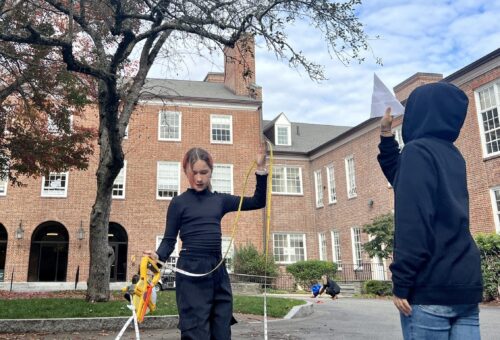
Middle School science students investigate fall foliage
